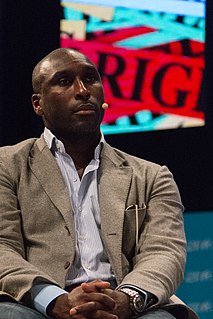A Quote by Stephen Covey
Actually I did not invent the seven habits, they are universal principles and most of what I wrote about is just common sense. I am embarrassed when people talk about the Covey Habits, and dislike the idea of being some sort of guru.
Related Quotes
Insomnia is a very prevalent issue. It's a women's health issue, and I chose to talk about it because so many people have experienced it to varying degrees. For me, I'm doing great now, but it took a lot of work to figure out how to get back to sleep. I had to change some of my habits. I developed some pretty bad sleep ritual habits.
Patterns of repetition govern each day, week, year, and lifetime. 'Personal habits' is one term we use to describe the most common of these repeated patterns. But I say these habits are sacred because they give deliberate structure to our lives. Structure gives us a sense of security. And that sense of security is the ground of meaning.
When we start talking about gurus, first of all we're starting to talk about something that can't be talked about, in the sense that you can never really know what a guru is as long as you are imprisoned by your own thoughts and circular ego. The true guru is someone who's transcended all that. And we don't know anything about that.
I'm not like most comedians. I don't deal with just heckles - I'm also dealing with threats and anger. Here I am, a brown person on stage being quite blunt. I talk about white privilege; I talk about U.S. imperialistic practices; I talk about colonialism. I'm not saying things that are easy for people to laugh at.





































